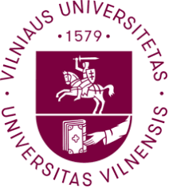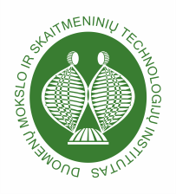About

Funding: Lithuania government commissioned studies Priority research programme 2023-2026 „Building Societal Resilience and Crisis Management in the Context of Contemporary Geopolitical Developments”. Implementation via Lithuanian Research Council.
Project title: ‘Propaganda and disinformation research: machine learning-based automatic recognition, impact and societal resilience’.
Main objectives:
(i) to develop algorithms for the detection of propaganda and disinformation in the context of information warfare, based on hybrid machine learning methods, which can be used to evaluate propaganda and disinformation (PD) texts, and
(ii) to analyze the possibilities of modelling the impact of PD on the development of social capital in society, predicting trends of radicalization and polarization.
Summary
In the context of the global information war, propaganda and disinformation (PD) are disseminated massively and systematically through news portals and social networks to manipulate public mood and behavior. Indoctrinated social groups, caught in the bubbles of PD flows, become radicalized and polarized not only in terms of political but also social behavior, which leads to the loss of trust in government institutions, the disintegration of civil society, diminishing ability to resist external influences, and the overall decreasing of social capital. This multidisciplinary research aims to use machine learning methods to investigate the possibilities of automatic detection of PD and its sources in news portals and social network messages, creating a recommendatory decision support tool. For that purpose, a repository of the text of PD messages is created, and experts’ content analysis is carried out to label the PD texts used for the training and testing hybrid deep neural networks. The aim is to detect signs of PD, classify them according to types of PD, and estimate their networking and social influence. We employ machine learning, natural language recognition, computer linguistics, semantics, sentiment analysis, and other methods for PD text analysis. Quantitative and qualitative dynamics of propaganda are analyzed, and its impact on society’s social capital is modeled. With the help of cluster and network analysis, a map model of informational bubbles of indoctrinated groups of people is created to monitor and forecast the trends of radicalization and polarization in social groups. Various digital technologies and approaches are recommended to strengthen online societies’ and general public resilience.
Project ID: No. S-VIS-23-8.
Implementation period: 01.09.2023 – 30.06.2026.
Financing amount: 195607 EUR.
Research partners:
University of Arkansas, UAB Delfi, University of Cyprus, Strategic Communication Department of the Lithuanian Armed Forces, VŠĮ Lietuvos nacionalinis radijas ir televizija.
